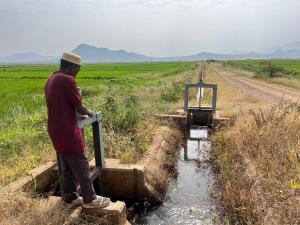Test project Pesticides and Protection Tanzania
testing out building a project
Omar Pérez: Submarine Roots, Resisting (un)natural disasters
omarperezI am interested in seeing how social ties and networks have been used to cope with (un)natural disasters. My research focus on places under disasters conditions such as Puerto Rico after hurricane Maria, in which social ties have made the difference between life and death. Furthermore, “natural” disaster has been used to approved austerity measures and unjust policies to impoverished communities like in New Orleans after Katrina. These policies were not new, as they are rooted in structures of power to preserve the status quo. Yet, people have resisted, “through a network of branches, cultures, and geographies” that has stimulated a reflective process of looking within for solutions rather than outside. As often this outside solutions are not only detached from community’s reality but can perpetuate social injustices and inequalities.
McKittrick, K., & Woods, C. A. (Eds.). (2007). Black geographies and the politics of place. South End Press.
Bullard, R. D., & Wright, B. (Eds.). (2009). Race, place, and environmental justice after Hurricane Katrina: Struggles to reclaim, rebuild, and revitalize New Orleans and the Gulf Coast. Westview Press.
Environmental Justice framing implications in the EIS

The Environmental Impact Statement (EIS) is a document required by the National Environmental Policy Act
Annotated Bibliography (EIS)
This link complements the Essay Bibliography of the Project Environmental Justice framing implications in the EIS.
Environmental Justice Framing Implications in the EIS. Essay Bibliography
This is the PECE essay bibliography for:
EPA Database on EISs
This (EIS) database provides information about EISs provided by federal agencies, and EPA's comments concerning the EIS process.
pece_annotation_1480605982
Andreas_Rebmann"The violence broke out when the patient spit at the Emergency Service Unit officers and swore at them. The officers responded by hitting him in the face, hauling him off the stretcher to the ground and then tossing him back on the stretcher, the EMTs said in written statements submitted to the FDNY."
"An FDNY spokesman confirmed there was a notification from the agency to the NYPD. The NYPD said the 67th Precinct incident is being investigated by the Internal Affairs Bureau."
pece_annotation_1474149950
Andreas_RebmannIt was a new way of addressing disaster in 1971 when it was founded.
“It’s simple really: go where the patients are. It seems obvious, but at the time it was a revolutionary concept because borders got in the way. It’s no coincidence that we called it ‘Médecins Sans Frontières.’”



the rice irrigation scheme, Pare Valley, Tanzania